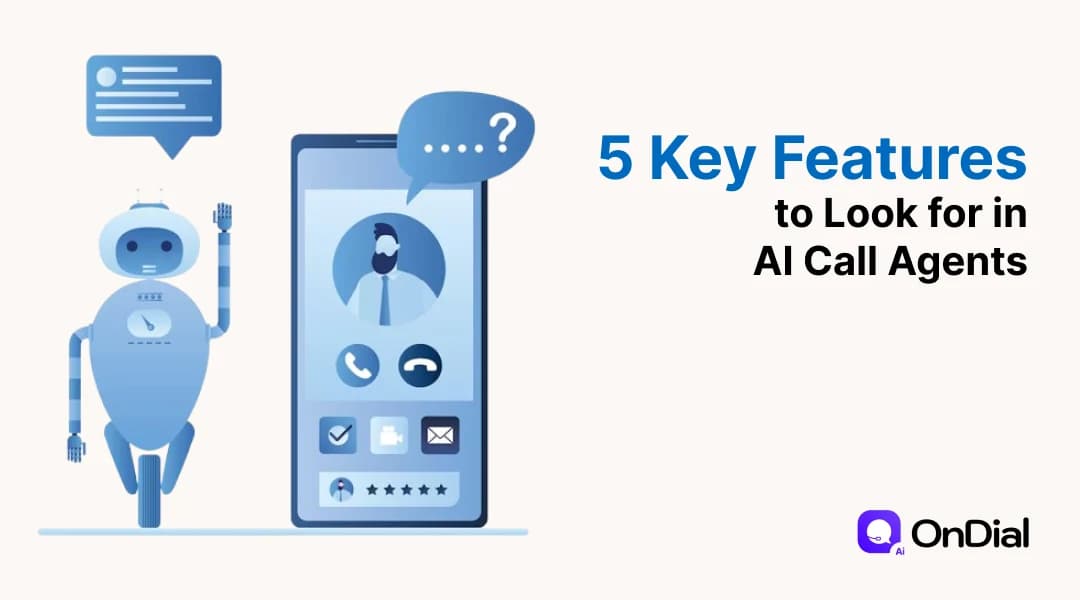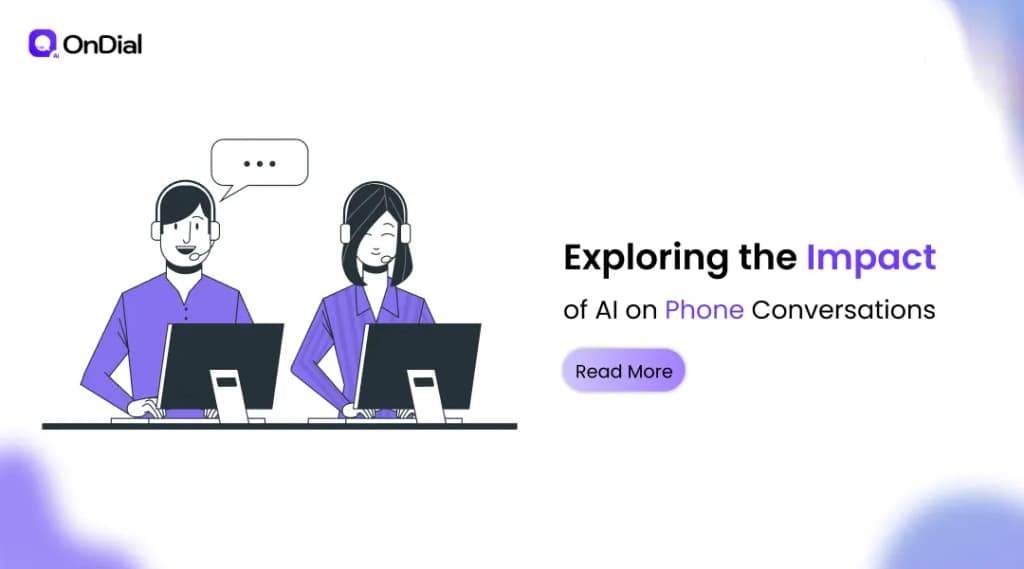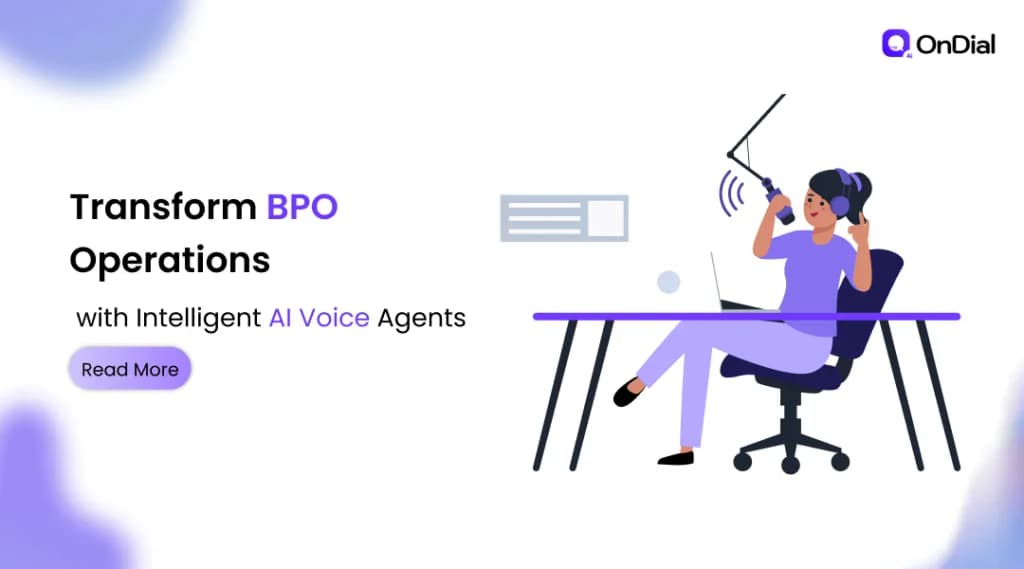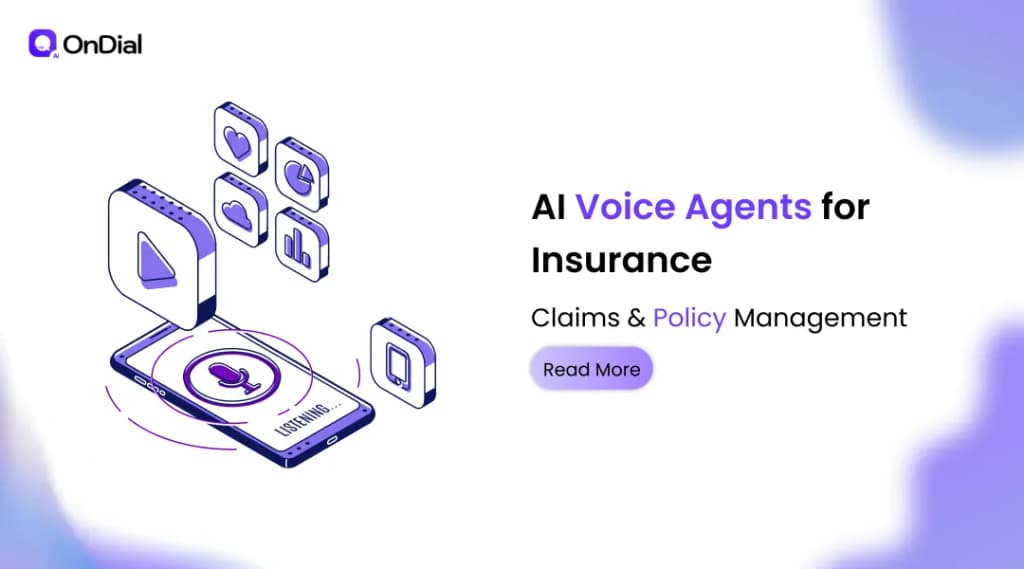Let me be blunt: most AI call agents sound smarter on a sales deck than on an actual phone line. I’ve sat through demos where the “AI” froze at a customer asking, “Can I change my plan?” - a question any human trainee could handle in week one.
That’s the gap I want to close for you. Not hype. Not theory. Just the five features that actually matter when choosing an AI call agent for your business.
I’ve worked both as a developer (where I obsessed over code efficiency) and now as a strategist helping businesses cut through tech marketing noise. So when I say these are the five pillars to look for, it’s because I’ve seen what breaks when they’re missing.
Top Features in AI Call Agents
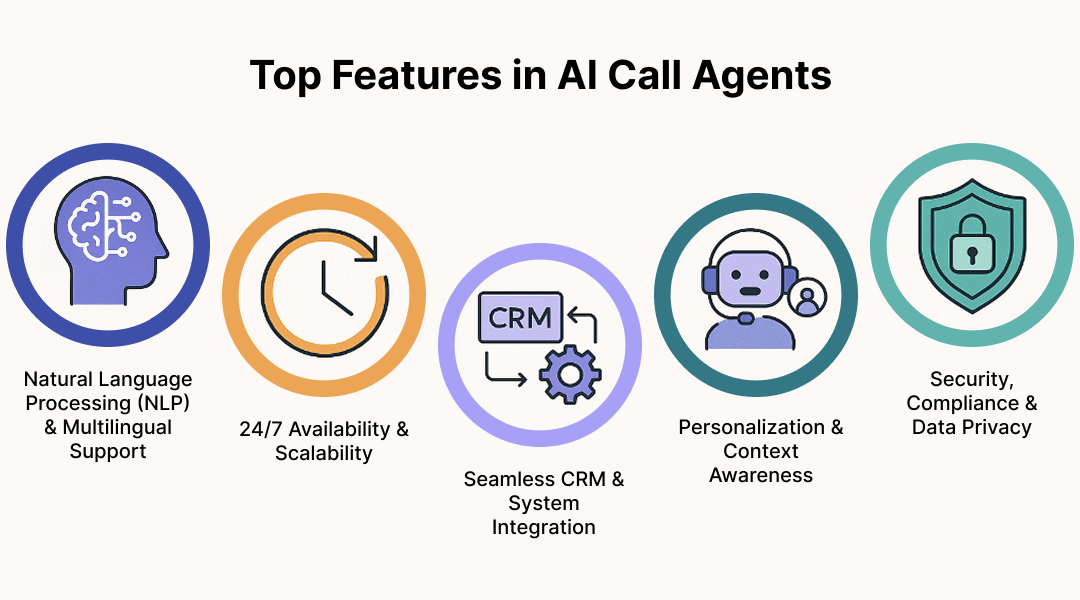
Natural Language Processing (NLP) & Multilingual Support
If your AI call agent doesn’t understand customers, nothing else matters.
NLP isn’t just a buzzword; it’s the ability to catch meaning, intent, and context in real conversations. Customers don’t speak in keywords. They stumble, repeat, switch languages mid-sentence. Your AI has to keep up.
Example: A customer in Mumbai might say, “Recharge karna hai… 399 wala plan hai kya?” The agent should recognize the intent (“buy a 399 recharge plan”) without getting stuck on the Hinglish blend.
This is where multilingual NLP matters. If your business is global—or even just pan-Indian—you need agents that understand not just English but Hindi, Tamil, Bengali, Spanish, or Arabic depending on your customer base.
Pro tip: Ask vendors for real call samples, not just canned demos. If their AI handles slang, accents, and emotional tone, you’re on the right track.
24/7 Availability & Scalability
Humans need breaks. AI doesn’t.
If you’re running an e-commerce store during holiday season or a hospital hotline during flu season, you know call volumes spike when you least expect it. AI call agents worth their salt don’t just stay awake 24/7; they scale up dynamically when hundreds of calls hit at once.
I once worked with a SaaS client whose customer support queue dropped from 40 minutes to under 2 minutes because their AI phone agents took the load off at peak hours. The human reps? Freed up to handle the complex cases that actually required empathy.
And let’s not forget global businesses. Your U.S. customers don’t care that it’s 3 AM in Bangalore. AI ensures someone always picks up, without burning out your team.
Seamless CRM & System Integration
Here’s the deal: a call agent that can’t talk to your CRM is just a glorified answering machine.
Imagine this: A customer calls to check their order status. The AI says, “Let me connect you to an agent.” Useless. A good AI call agent should pull that order number directly from your CRM, confirm it with the customer, and only escalate if needed.
At OnDial, I’ve seen integrations with Salesforce, HubSpot, Zoho, and even homegrown CRMs. The payoff is massive: fewer data silos, faster resolutions, and smoother human handoffs.
Ask vendors: Can your AI push and pull data from my CRM in real-time? If they hesitate, walk away.
Personalization & Context Awareness
This one separates the cheap knock-offs from the real contenders.
Personalization means your AI remembers past interactions and adapts. If I called last week about a loan application, I don’t want to repeat my details again. Context awareness is what makes AI feel less like a robot and more like a reliable assistant.
Example: In healthcare, if a patient calls for test results, the AI shouldn’t just confirm identity—it should also recall the last appointment, the type of test ordered, and guide them to the next step.
This isn’t just convenient. It’s customer experience gold. Customers who feel “known” stay longer, buy more, and churn less.
Security, Compliance & Data Privacy
Here’s the uncomfortable truth: a single compliance slip can destroy trust faster than a dropped call.
Industries like finance and healthcare have zero margin for error. Your AI call agent must meet standards like HIPAA (for healthcare), GDPR (for EU customers), or RBI regulations (for India).
Look for features like:
- Encrypted call recordings
- Role-based access control
- Automatic data anonymization
- Audit trails for compliance checks
Because nothing kills adoption faster than your legal team saying, “Nope, too risky.”
Conclusion
AI call agents aren’t here to replace humans. They’re here to make humans more effective.
Get NLP wrong, and your customers hang up frustrated. Miss scalability, and you’re back to long queues. Ignore integrations, and your AI becomes a fancy voicemail. Skip personalization, and you lose customer trust. Forget security, and you’re facing lawsuits.
But when do all five features click? You’ve got a system that doesn’t just answer phones, it builds relationships at scale.
If you’re evaluating solutions, put these features at the top of your checklist. Ask hard questions. Demand proof. Because the difference between hype and help is whether your AI actually makes life easier, for your team and your customers.
